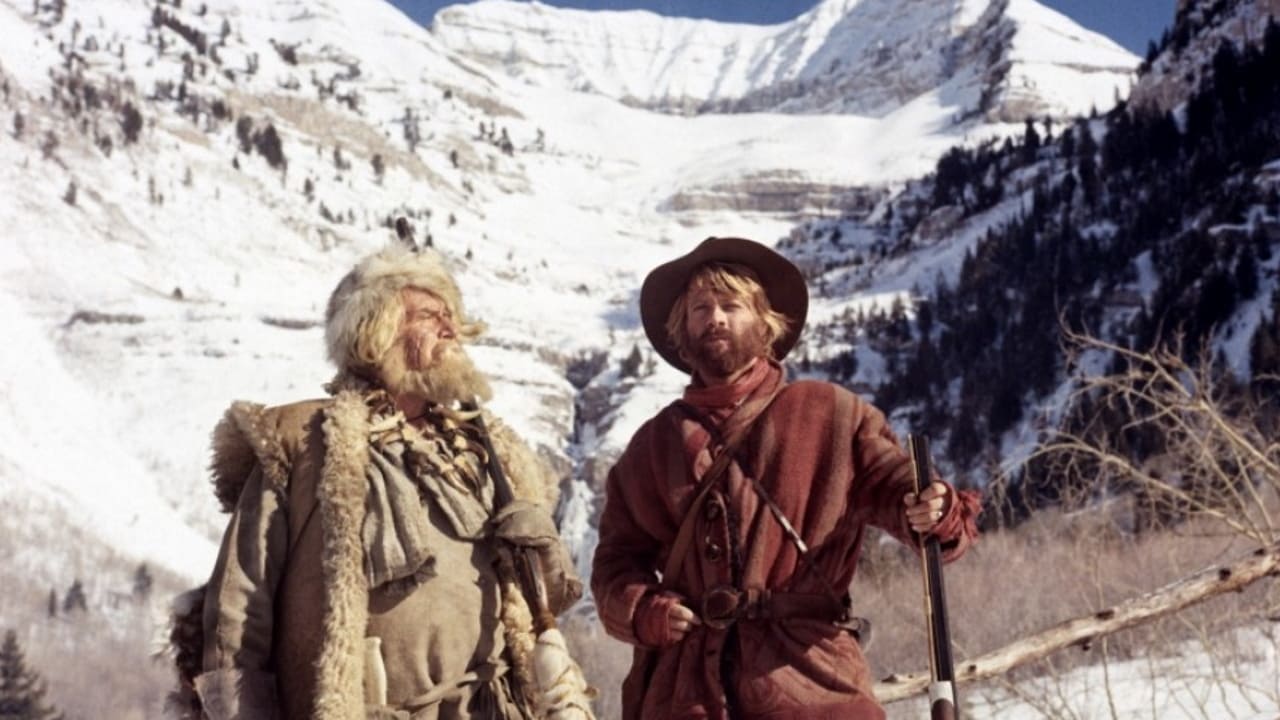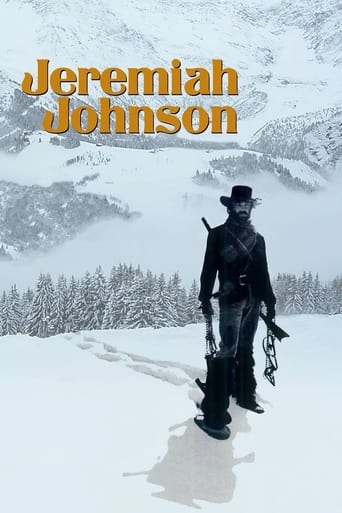WillSushyMedia
This movie was so-so. It had it's moments, but wasn't the greatest.
Murphy Howard
I enjoyed watching this film and would recommend other to give it a try , (as I am) but this movie, although enjoyable to watch due to the better than average acting fails to add anything new to its storyline that is all too familiar to these types of movies.
Brooklynn
There's a more than satisfactory amount of boom-boom in the movie's trim running time.
PimpinAinttEasy
An American soldier decides to wander into the frontier mountains and live a life of solitude sometime in the 19th century.This is a great man in the wilderness fighting to survive in nature movie. I loved the long periods of silences and the overwrought songs which made the background score.The film is quite politically incorrect. It doesn't portray the Indians in very good light. Anyway, I am not an expert on the context of this film. So this was primarily a man against nature film for me. Though I am sure there are many other themes in this film. Nothing is romanticized here. Life in the mountains is portrayed as tough, violent and dangerous.While I am not a big fan of his, Robert Redford was good enough as Jeremiah Johnson.There were parts of the films which were unbelievable - like the bit where Jeremiah singlehandedly kills a posse of Indians.The part where Jeremiah lives with an Indian woman (to whom he is forcefully married) and a small boy was interesting. Their interactions as a family unit out in the wilderness is the stuff daydreams are made of.(7/10)
poe426
The finest westerns, it seems to me, are the least conventional ones- movies like BAD COMPANY, with Jeff Bridges, for instance, which takes the stylized romance of the Fred Remington-esque westerns of the early 20th century and gives it a good, swift kick in the seat of the pants. As did McCABE & MRS. MILLER (whose look and feel may well have inspired the teleseries DEADWOOD, to some degree); and CHARLEY ONE-EYE (which co-starred Richard Roundtree and Roy Thinnes); and THE BALLAD OF GREGORIO CORTEZ (with Edward James Olmos); and THE GREAT NORTHFIELD, MINNESOTA RAID (with Robert Duvall); and WILL PENNY (starring Charlton Heston), etc. Redford is credible as Johnson and his interactions with the locals are often riveting. "Friend or foe...?" Will Geer (who played Grandpa Walton on THE WALTONS) seemed born to play a Mountain Man, and his is one of the more memorable parts: he takes things in stride, with a barely-concealed sense of humor, but understands all too well the hardships of life in the mountains and has a wistful air about him when last he lays eyes on JEREMIAH JOHNSON. Giersach is likewise a character never to be forgotten- but it's the solitary struggle of Johnson- who "was bettin' on forgettin'"- as rendered by Redford who is most memorable of all.
NORDIC-2
New Jersey-born John Garrison, a.k.a., John Johns(t)on (c.1824–1900) joined the Union Army in St. Louis, Missouri in 1864 and served with Company H, 2nd Colorado Cavalry. Honorably discharged in 1865, Johnson migrated further west and became a notoriously tough and ruthless trapper, Indian fighter, and lawman. In the 1880s he served as Deputy Sheriff in Coulson, Montana and later became Town Marshall in Red Lodge, Montana. He died of old age at a veteran's home in Los Angeles. Such are the rather prosaic facts of the real John Johnson. Then there is the myth. An associate of Wild Bill Hickock named Joseph (John) "White Eye" Anderson (1853–1946) seems to be the main source for the fantastic legends that accrued around Johnson in the second half of the 20th century. In 1941 Anderson regaled western writer Raymond W. Thorp with tall tales of "Crow Killer" or "Liver Eating Johnson," so named because Johnson allegedly slew between 300 and 400 (!) Crow warriors and ate their livers, raw, to avenge the murder of his pregnant wife in 1847 by a Crow hunting party—20 years before John Johnson moved West. Seventeen years after meeting Anderson, Raymond Thorp joined Robert Manson Bunker in writing 'Crow Killer: The Saga of Liver-Eating Johnson' (Indiana UP, 1958), a highly speculative "biography" that turned Anderson's wild fabrications into uncorroborated "fact." Noted western author Vardis Fisher further burnished the Johnson legend with his novel, 'Mountain Man' (Morrow, 1965). Building myth upon myths, screenwriter John Milius ('The Life and Times of Judge Roy Bean') used Crow Killer and Mountain Man as his sources for Jeremiah Johnson, a movie that more realistically chooses to portray Johnson (Robert Redford) as a ascetic, romantic loner, not the vengeful, brutal monster recounted by White Eye Anderson. (Rather than waging a vendetta on the Crow, Redford's Johnson is constantly attacked by them.) Further enhancing Jeremiah Johnson's nobility and the film's lyricism are breathtaking vistas of the rugged Utah Rockies shot by Duke Callaghan (promoted to DP after serving as one of Sydney Pollack's cameramen on his previous film, 'They Shoot Horses, Don't They?'). If that were not enough, a lush musical score by John Rubenstein and Tim McIntire completes the picture. Yet, when the movie premiered at the 26th Cannes Film Festival on May 4, 1972, Robert Redford somewhat disingenuously told 'New York Times' interviewer Cynthia Grenier: "I wanted this film to be an antidote to the general feeling in the States today that getting away from civilization is such a terrific thing and is so romantic. I wanted to show the kids what it is really like going it on your own in the wilderness..." 'Jeremiah Johnson' might well have been the gritty western that Redford imagined it to be if producer Joe Wizan had gone with Clint Eastwood as Johnson and Sam Peckinpah as director, as was originally planned. The estimable (and once-blacklisted) Will Geer (best known as Grandpa on "The Waltons") plays Johnson's wilderness survival mentor, Bear Claw Chris Lapp. VHS (1997)and DVD (1997).
chase_cabot
I originally discovered Jeremiah Johnson while on IMDb (go figure) while browsing the westerns. I have seen many westerns in my time, and a good few were generic or shallow, but Jeremiah Johnson looked like a unique film to me, so I rented it. I was not disappointed. Jeremiah Johnson is more than a western, it quite accurately and deeply depicts the mentality and desire to escape from society and the problems in our lives, while also portraying human interaction in a way I found touching. With each new person he meets, we see a new character interaction, with Bear Claw we see salvation and gratitude in Johnson, and the "family" he later has reveals companionship and deep affection even when it begins in odd and tense situations. Overall, we see reflected onto us how much meaning our interactions with others have, even though that meaning becomes lost in the jumble of our daily lives. Johnson also embodies the desire for humans escape their situation for something more peaceful. In Johnson we see ourselves, we see our desire to find something better, sometimes for solitude. In summary, the interactions between people and what it reveals about human nature is what makes Jeremiah Johnson a truly beautiful movie.

